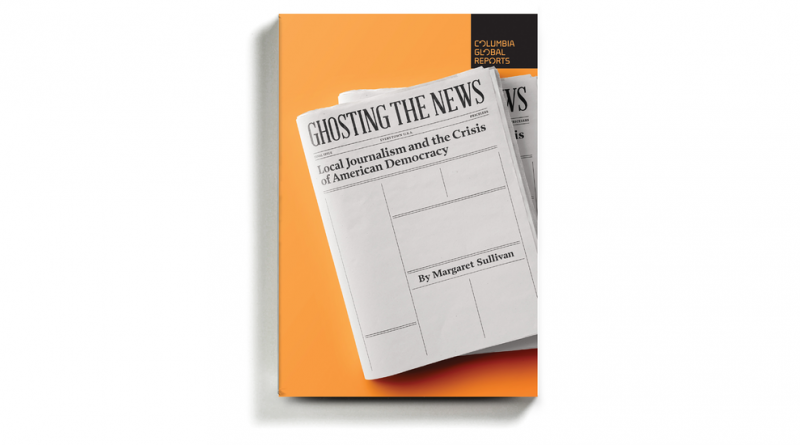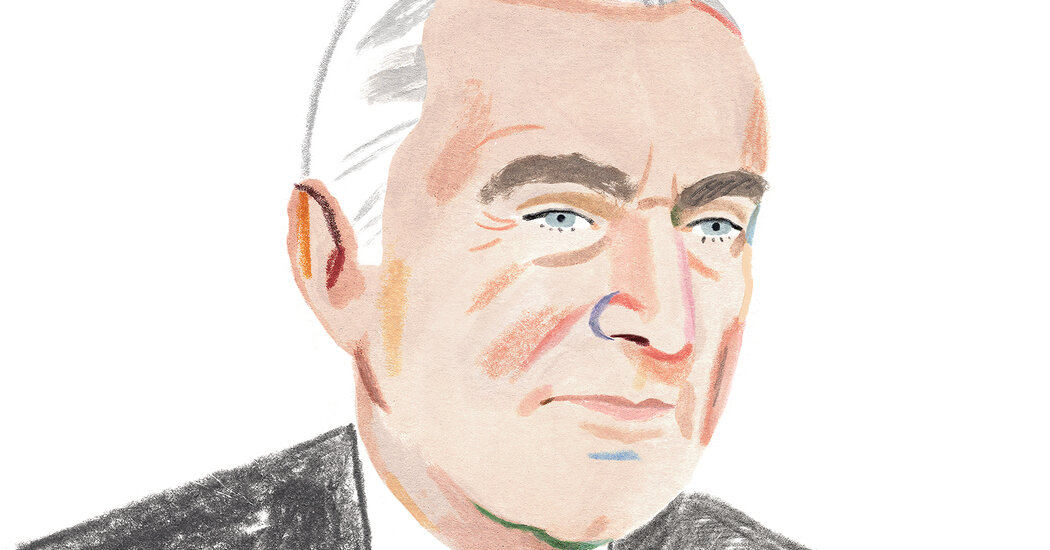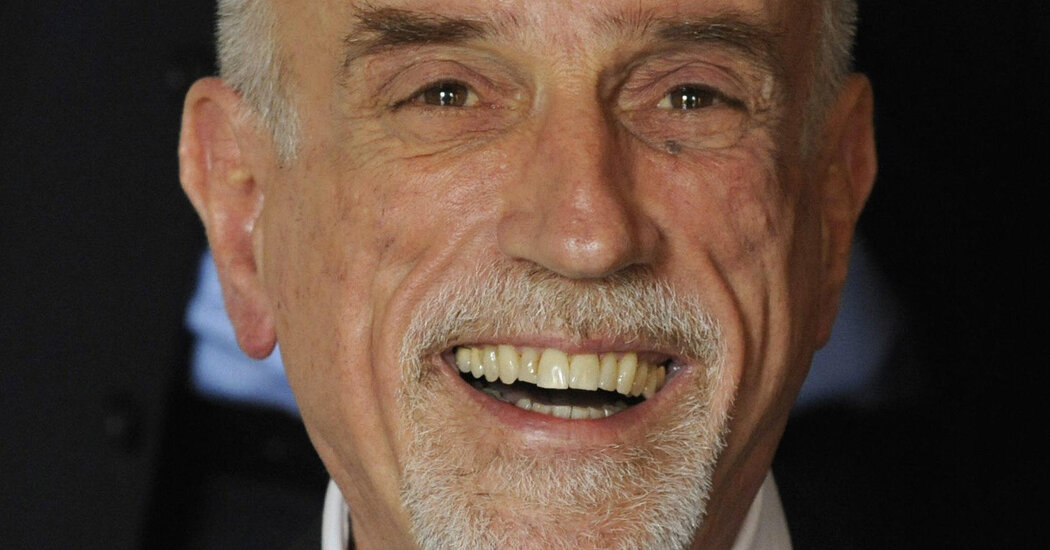Yes, Fake News Is a Problem. But There’s a Real News Problem, Too.
What do you call it when a hedge fund buys a local newspaper and squeezes it for revenue, laying off editors and reporters and selling off the paper’s downtown headquarters for conversion into luxury condos or a boutique hotel?
The devastation has become common enough that some observers have resorted to shorthand for what collectively amounts to an extinction-level event. One former editor calls it a “harvesting strategy”; Margaret Sullivan, in her new book, “Ghosting the News,” calls it “strip-mining.” Like the climate emergency that Sullivan mentions by way of comparison, the decimation of local news yields two phenomena that happen to feed off each other: The far-reaching effects are cataclysmic, and it’s hard to convince a significant number of people that they ought to care.
“Disinformation” and “fake news” bring to mind scheming operatives, Russian troll farms and noisy propaganda; stories about them are titillating enough to garner plenty of attention. But what Sullivan writes about is a “real-news problem” — the shuttering of more than 2,000 American newspapers since 2004, and the creation of “news deserts,” or entire counties with no local news outlets at all.
She begins her book with the example of a 2019 story from The Buffalo News about a suburban police chief who received an unexplained $100,000 payout when he abruptly retired. The article didn’t win any awards or even appear on the front page, Sullivan writes. “It merely was the kind of day-in-and-day-out local reporting that makes secretive town officials unhappy.”
“Merely” and “day-in-and-day-out”; Sullivan also describes the article as “routine-enough fare.” “Ghosting the News” is a brisk and pointed tribute to painstaking, ordinary and valuable work. As the media columnist for The Washington Post and the former public editor for The New York Times, Sullivan has spent most of the past decade writing for a national audience, but for 32 years before that she worked at The Buffalo News, starting as a summer intern and eventually becoming the newspaper’s editor.
Sullivan recalls the flush days when the paper boasted a newsroom fully staffed by journalists who could combine their calling with a career. Then came the internet, which siphoned off attention and revenue; after that, the deluge of the 2008 financial crisis, which swept away the vestiges of print advertising. Sullivan cut the payroll of the paper by offering buyouts. She got rid of the full-time art critic and eliminated the Sunday magazine — “a particularly wrenching decision because my then-husband was the magazine’s editor.”
The Buffalo News was owned by Warren Buffett’s Berkshire Hathaway until the beginning of this year, when Buffett declared it was time for him to leave the newspaper industry and sold his portfolio of 31 dailies and 49 weeklies. Buffett said he believes in the importance of journalism, but he doesn’t consider himself a philanthropist. He got into the business because it made money, with fat profit margins in the good years reaching 30 percent. When he bought The Buffalo News in 1977, he decided that the city could sustain only one daily, and he knocked out the competition until his was the last paper standing. A monopoly newspaper was like an unregulated toll bridge: With a loyal and captive market, he could raise rates whenever he wanted.
Advertisers may have been peddling baubles or junk food, but their cash funded serious journalism — the kind that could afford to send a reporter to, say, every municipal board meeting. “People knew that,” the former editor of the once mighty Youngstown Vindicator told Sullivan, “and they behaved.” This watchdog function had tangible benefits for subscribers and nonsubscribers alike. “When local reporting waned,” Sullivan writes, “municipal borrowing costs went up.” Local news outlets provide the due diligence that bondholders often count on. Without the specter of a public shaming, corruption is freer to flourish.
Sullivan surveys the alternative models that have sprung up in response to journalism’s ecosystem collapse. There’s the nonprofit reporting outfit ProPublica, and a “news brigade” of volunteer journalists in Michigan. Sullivan’s own employer was acquired by Jeff Bezos in 2013 for $250 million. “Jeff Bezos has not attempted to influence coverage at The Washington Post,” she writes, though billionaire owners aren’t always so hands-off. The casino magnate Sheldon Adelson bought the well-respected Review-Journal in Las Vegas, which was known for its investigative pieces on the casino industry, and leaned on its staff to produce puff pieces about his properties instead. Adelson turned the watchdog into a lap dog.
The situation is so dire, Sullivan says, that she entertains what was once unthinkable — the possibility of government-subsidized journalistic outlets. She calls the argument for government help “not unreasonable,” even if she hasn’t been entirely convinced yet. Her attempts to strike a hopeful note can sound unsatisfying because of how problematic all the solutions are. Nonprofit start-ups have the benefit of being “nimbler,” Sullivan says, though what does nimbler often mean in practice? A non-unionized newsroom staffed by 24-year-olds who can be paid junior-level salaries and, unlike veteran journalists three decades older, wouldn’t necessarily be ruined by a layoff?
Sullivan is left to highlight the essential work that local reporters do, emphasizing how The Palm Beach Post and The Miami Herald continued to pursue the story of Jeffrey Epstein’s sex trafficking long after others had decided that the abuse scandal had “gone stale.” More recently, local journalists recorded the influx of unidentified federal troops into Portland, Ore., where they were seizing and detaining people without telling them why or what was happening to them; the example was too late to be included in Sullivan’s book, and it only goes to show how critical and relentless the need is for reporters on the ground.
“Ghosting the News” concludes with a soaring quote from the Italian theorist Antonio Gramsci about “pessimism of the intellect and optimism of the will,” but the local reporter in Sullivan follows it up with a more immediate analogy: Even if no one seems to be coming to the rescue while your house is on fire, you still have to “get out your garden hose and bucket, and keep acting as if the fire trucks are on the way.”



